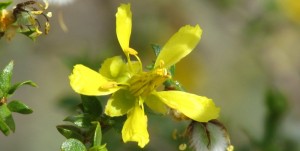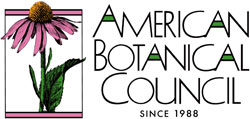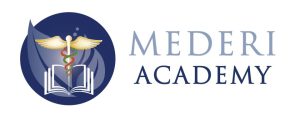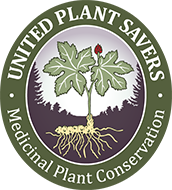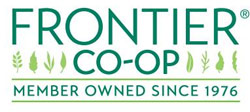Past Conference: April 6 – 8, 2018 Thank you to all who attended! Audio recordings now available!
Please see our upcoming herbal medicine conferences in 2019.
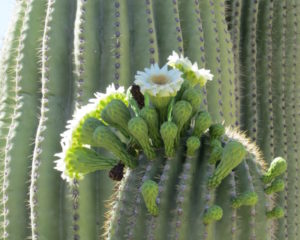
Annual Conference at the Southwest College of Naturopathic Medicine (SCNM) in Tempe, Arizona. See speakers and topics below.
Highlights: Over 30 lectures to choose from, two Friday field studies, and a pre-conference intensive on addiction with Kenneth Proefrock, ND Schedule
Naturopathic CE: Approved by California, Arizona and Oregon. Read more
Registration:$369 by April 5; $399 at the door. NOTE: Online and phone registration closes Thursday April 5 at 5 PM Pacific Time..
Location: SCNM 2140 E. Broadway Rd. Tempe, Arizona 85282. Conference phone: 541-482-3016.
Online and phone registration is now closed. Register at the door.
Photo: Saguaro Cactus by Mimi Kamp

Intensive Workshops on Friday, April 6
- Pre-conference Intensive: Naturopathic Approaches to Treating Patients with Substance Abuse and Addiction with Kenneth Proefrock, ND
- Friday Field Studies in the Superstition Wilderness: Morning with Phyllis Hogan or Mimi Kamp; Afternoon with John Slattery (Field Studies are now FULL)
Conference April 7 & 8:
The latest research on botanical therapies plus herb walks and medicine making classes. Includes:
• Managing Surgery with Botanicals (Emphasis on Cancer Surgery)
• Enhancing Memory and Focus
• Pain Syndromes: Fibromyalgia, CRPS and Arthritis
• Botanicals for Mood Disorders in Children
• Science Review of Research on Cannabis
• Re-evaluating Botanical Approaches to Anxiety and Depression
• SIBO (Small Intestinal Bacterial Overgrowth) and Botanicals
• Latest Research on Tropane Alkaloids
Full list of speakers and topics

Location: Southwest Conference on Botanical Medicine
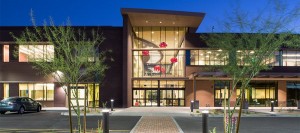
Address: 2140 E. Broadway Rd, Tempe, Arizona
One of the first college campuses constructed with sustainable / green building techniques, Southwest College of Naturopathic Medicine (SCNM) provides an ideal learning environment: comfortable indoor classrooms and an herb garden for outdoor lectures and meals. In October, 2016, the new Commons building (pictured right) received LEED Platinum Green certification for promoting renewable energy, saving resources and having a positive impact on the health of its occupants.
What makes SCNM such a great place for an herbal conference?
Hotel: Embassy Suites, Tempe
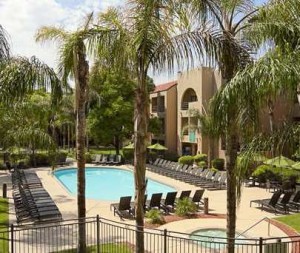
Just minutes away from SCNM, Embassy Suites offers two-room suites beginning at $134/night (plus tax). (800) 305-1369. Group #SBA. Discount good until March 8.
Register for rooms online–it only takes a minute
Hotel address: 4400 S. Rural Rd, Tempe, AZ 85282
Local phone: (480) 897-7444
Lodging includes complimentary:
- Airport transportation
- Van service from hotel to SCNM
- Made-to-order hot breakfast with omelet station
- Evening reception with drinks and snacks
- Free WiFi in all rooms

Friday April 6: Pre-conference Events
8:00 AM – Noon
NEW! Field Study in the Supertstition Wilderness near Lost Dutchman State Park
Mimi Kamp
Sorry this event is FULL
Mimi takes her group to the beautiful Superstition Wilderness near Lost Dutchman State Park, a sacred spot for relaxed attunement to the healing magic of the desert. Explore uses of the plants and their flower essences. We will sample tea and food plants, and demonstrate preparing a few desert plants for first aid. ($59) Read more
8:00 AM – Noon
Field Study: Superstition Wilderness Area First Water Trailhead
Phyllis Hogan
This event is also FULL
Step into the prehistoric Garden Valley to find medicinal species and habitat unique to this special area of our planet. Learn to identify medicinal species living there, and their uses as medicine. Using each of our senses, gain a deeper understanding of the plants and the habitat they call home, against the stunning backdrop of the Superstition Mountains..($59) Read more
1:00 – 5:15 PM
Pre-conference Intensive: Naturopathic Approaches to Treating Patients with Substance Abuse and Addiction Part 1 and Part 2
Kenneth Proefrock, ND
Our clinic has developed a comprehensive naturopathic approach to treating patients with substance abuse issues over the past 22 years. Here we reveal our basic approach, using a botanical medicine, counseling, nutritional and lifestyle-oriented strategy. We discuss the ways that natural substances can be used to promote a better calibration of the patient’s response to their self-medication. ($79) Read more.
2:00 – 6:00 PM
Field Study: Superstition Mountains. Becoming a Bioregional Herbalist–How we Develop Relationship with Plants
John Slattery
SORRY THIS EVENT IS FULL
Join bioregional herbalist John Slattery for a walk through a diverse Sonoran desert landscape where multiple habitats converge, as we explore the various modes of gathering knowledge about plants as medicine. We focus on direct observation of plants and receptivity to knowledge and healing that comes directly from the plants. John has been honing these exercises and this approach to working with wild plants for over a decade. ($59) Read more

Saturday April 7
7:30 AM – 8:30 AM Registration: SCNM Academic Building Lobby
8:30 AM – 9:15 AM Opening Meeting: Speaker Introductions and Welcome – SCNM Auditorium
9:30 AM – 11:00 AM (Concurrent lectures–choose one–no need to sign up in advance.)
Use of Cannabis Compounds for Health and Disease Treatment: A Science-Based Review
Christopher Hobbs, PhD
Reviews over 250 clinical trials on the efficacy and safety of cannabis use for glaucoma, HIV/AIDs, opiate addiction, nausea, cancer-related cachexia, muscle spasms, epilepsy, pain, autoimmune diseases and inflammation. The benefits and drawbacks of different delivery systems, different solvents for extraction and vaporizers are discussed. Clinically relevant details on the chemistry, pharmacology, pharmacokinetics and pharmacodynamics of cannabinoids, including THC and CBD, are summarized.
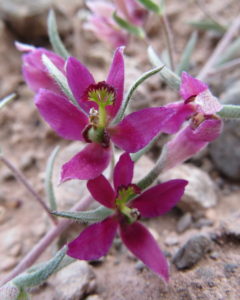
A Review of Natural Compounds Shown to Combat Hepatitis Viruses
Jill Stansbury, ND
The most recent research on the well-established liver remedies Silybum and Curcuma, is explored, along with clinical applications of Andrographis and Phyllanthus and other liver herbs. The individual molecules in these and other hepatic herbs are examined, including andrographolide, astragalosides, phyllanthin, and glycyrrhetinic acid.
Powerful Herbal Pairs
Paul Bergner
The power of herbs in combinations of two or three may extend exponentially beyond that of their use as simples. Herbal pairing, a foundation of the study of Traditional Chinese Medicine, is also documented in the histories of Physiomedical and Eclectic medicines in North America and Great Britain. We discuss some powerful herbal pairs from North American herbal history as well as from contemporary practice. Herbs include Matricaria, Curcuma, Echinacea, Scutellaria, Hypericum, Piscidia, Eschscholtzia, Viburnum, Eupatorium, Calendula, and Althaea.
Creating Intimacy with the Wisdom of Plants (Outdoors in the Garden)
Rhonda PallasDowney
Learn how to create awareness of oneself by connecting to the wisdom of the earth, the plants and the flowers. We take a personal journey of transformation to experience oneness with the plant kingdom, and discover its mystery and connection to both the inner and outer worlds within us and the universe, awakening our spiritual awareness and remembering it in our hearts
11:00 AM – 11:30 AM
Refreshments and Exhibit Break
11:30 AM – 1:00 PM
Herbal Nootropics: Botanicals for Enhancing Memory, Focus and Concentration
David Winston, RH (AHG)
The word nootropic describes substances that enhance cognitive function. Many pharmaceutical medications used as nootropics have serious adverse effects and are inappropriate for self-medication. Nutritional supplements are safer, but the research is sparse or inconclusive. The safest and most effective nootropics come from the plant kingdom and there is a wealth of traditional knowledge and clinical research documenting the benefits of these powerful yet gentle herbs. In this presentation we discuss nootropic formulas and how they can be a useful way to reduce age-related memory decline, stress and cortisol-induced cognitive dysfunction and help to speed healing of head trauma injuries.
Keeping Kids Healthy: Botanicals that should be in your medicine cabinet and how to get kids to take them
Mary Rondeau, ND
Children often suffer from diarrhea, vomiting, chronic mucous and coughs. While these common childhood conditions are important for strengthening the immune system they can be burdensome to a working family. A well stocked herbal cabinet can be useful for tackling these concerns in children. Half the battle is having the cabinet stocked and the other half is getting kids to take the herbal preparations. Learn about creative (and tasty!) ways to get these medicines into kids.
Abnormal Paps, Cervical Dysplasia and HPV
Katie Stage, ND
There are many strains of the human papilloma virus (HPV). Low-risk strains cause warts of all types; high-risk strains of HPV cause most abnormal paps and cervical cancer. Many people don’t realize that high-risk HPV can also cause oropharyngeal, esophageal, vulvar, penile, and anal cancers. This presentation highlights the latest research on HPV, as well as conventional and herbal treatments for the virus. Herbal treatments for abnormal paps are also discussed.
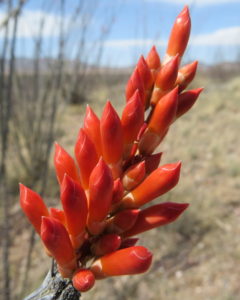
Basics of Tincture Prephttps://www.botanical-medicine.org/Basics-of-Tincture-Preparationaration (In the SCNM herb garden)
Jane Bothwell
Familiarize yourself with the basics of preparing herbal tinctures (highly concentrated herbal extracts that generally keep for long periods of time and are convenient and easy to use). From the folkloric method of simply covering herbs with solution to the exacting measurements of the scientific methods, making these exciting medicines from both fresh and dried plants will be thoroughly discussed and demonstrated. Creating your own medicines is empowering and gives you a stronger knowledge base from which to choose products for yourself and your patients.
1:00 PM – 2:00 PM
Lunch (with pre-paid ticket) and Exhibit Break
2:00 PM – 3:30 PM
Little-known Physiological Facts that may Change your Practice of Herbalism
Paul Bergner
Little-known but well-established facts about human physiology are presented which demonstrate the wisdom and relevance of traditional herbal practices and may change the way you use herbs with patients now. Subtopics include the healing power of mucous, the urinary alkaline tide; the speed of kidney filtration; the gut wall as lymphoid tissue; connective tissue as immunological organ; and plasma protein re-circulation in the lymph. Categories of herbal actions include expectorants, demulcents, vulneraries, anti-inflammatories, lymphatics and alteratives. Delivery as tinctures, teas, and topical applications are evaluated.
Managing Surgery with Botanicals: When, how, why and why not to do surgery, with special reference to cancer
Chanchal Cabrera RH(AHG)
More than 234 million surgical procedures are performed annually worldwide and over 40% of patients experience cognitive impairment, including memory deficits, after surgery and anesthesia. This is associated with poor patient outcomes including reduced quality of life, loss of independence, and increased mortality. In addition, surgery up-regulates several growth factors necessary for angiogenesis, as well as inflammatory pathways, such as COX-2 and LOX-5 and these can all promote cancer growth. In this lecture we explore when and why, or why not, to do surgery, how to promote tissue repair and cognitive recovery, and how to reduce risk of spreading cancer.
Comparative Mechanisms of Action between Botanical Antimicrobials and Pharmaceutical Drugs
Jeffrey Langland, Ph.D.
Part one features in vitro observations on the treatment of herpes simplex virus (HSV). Drug treatments have favored the overuse of pharmaceuticals and the development of viral resistance, and have changed little since the 1980s. Our research in the SCNM lab indicates a new mechanism of action for Melissa officinalis, which may be more effective than commonly used pharmaceuticals for all forms of HSV. Part two reports in vitro comparisons of mechanisms of actions of pharmaceuticals and botanical compounds in the treatment of MRSA and other drug-resistant infections, with focus on beta-lactam and quinolone botanical compounds in Coptis and Salvia.
Medicinal Weeds in my Back Yard (Outdoor Class)
Phyllis Hogan
Phyllis introduces us to six special medicinal, ceremonial and symbolic plants that have been utilized for over 500 years by traditional Arizona healers. Pressed plant specimens from her extensive herbarium provide a visual representation of these plants. Learn how to prepare both tea and tinctures from fresh and dried plant material, and understand the cultural and medicinal uses of epazote, estafiante, horseweed, prostrate vervain, licorice marigold and amolillo (palo dulce)..
3:30 PM – 4:00 PM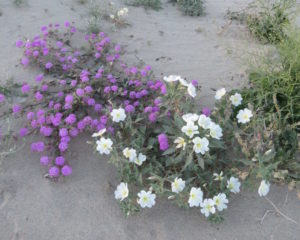
Refreshments and Exhibit Break
4:00 PM – 5:30 PM
Emerging Research on Tropane Alkaloids
Jill Stansbury, ND
Tropane alkaloids have a long-standing history in shamanism, but are also used in several essential pharmaceuticals including atropine and scopalamine. The current uses of Solanacea family tropane alkaloids are detailed, including the physiologic mechanisms of action, and emerging research on novel applications for respiratory disease and opiate addiction.
Simple Remedies to Specific Medicines, the path from Thomson, to the Physiomedicalists and the Eclectics
David Winston, RH (AHG)
We often turn to TCM or Ayurveda to add the essential concepts of energetics and differential diagnosis missing in western herbal practice. We actually have our own American systems of herbal practice that give us the ability to match herbs to the specifics of a patient’s constitution and symptom picture. These systems, known as Physiomedicalism and the Eclectic Practice of Medicine, developed in the 1820-30s and are an underexplored trove of highly useful clinical information. We review the origins, history and medical theories of these systems along with a detailed look at the Eclectic use of “specific medicines” for effectively treating challenging skin conditions.
Re-evaluating Botanical Medicine Approaches to Depression and Anxiety
Kenneth Proefrock, ND
Depression and anxiety are complex psychiatric disorders that affect 25-30% of the population (a conservative estimate) and come with an enormous social cost. Recent evidence suggests that these disorders are far more complex than ever before appreciated and are products of epigenetic, genetic, and situational circumstances that include neurotransmitter metabolism, altered receptor sensitivity, immunological inputs and psychological processing. The current arsenal of psychotropic pharmaceuticals are only effective for 50-60% of the population, take 4-6 weeks to become fully effective, and seldom bring long-term resolution. We review the history of pharmaceutical approaches to antidepressant/anti-anxiety drug development, discuss where and why these strategies fall short of their intended goals and what they have taught us about the biochemistry of mood disorders. We propose novel approaches to these conditions using botanical, nutritional and lifestyle measures. We also discuss strategies for safely weaning patients from their pharmaceutical agents.
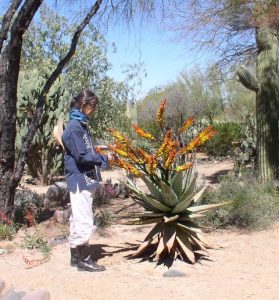
Herb Walk Desert Botanical Garden ($22 admission to garden)
Mimi Kamp
The April bloom is usually spectacular in this 145-acre preserve offering over 4,000 desert plant species. Learn to identify the medicinal plants of the desert and how to use them for medicine. Limit 20. Reserve your spot in advance at conference registration on Saturday. Carpools leave from SCNM at 3:40 PM.
6:00 PM – 6:30 PM
Dinner and Exhibit Break
7:00 PM – 8:30 PM
Panel Discussion: Prevention of Cognitive Decline as we Age
Chanchal Cabrera, Katie Stage and Jill Stansbury
With over 5 million US citizens afflicted with Alzheimer’s disease, and that number predicted to rise to 7 million in few more years, cognitive decline is one of the most pressing challenges our society faces. This panel examines current theories of causation of cognitive decline and pharmaceutical agents in use today, their side effects and general effectiveness, contrasted with recommendations for diet, lifestyle, botanical and nutritional programs to protect our cognitive ability as we age.

Sunday April 8
9:00 AM – 10:30 AM
Botanical Medicine for Mood Disorders in Children, Part 1
Mary Rondeau
Mood disorders in children are on the rise, with current estimates of 20% of the pediatric population suffering from disruptive disorder, depression, bipolar disorder, anxiety and other mental health conditions. Pharmaceuticals, although helpful for some children, are often associated with lack of long term evidence, side effects and can be difficult to wean. Treatment-resistant depression and bipolar disorder in youth are associated with poor prognosis including higher suicide rates. Botanical and nutritional medicine offer many unique choices that can be useful in the management of these cases with typically less side effect profiles and more individualization per patient. When treating a medicated pediatric population it is important to understand herb-drug interactions. The use of combined botanicals with drugs is discussed as well as potential medication weaning tools. Continued in Part 2.
Daily Tonics: Recipes for Life and Longevity
Jill Stansbury, ND
This presentation aims to inspire participants to prepare teas, smoothies, and remedies embraced folklorically as longevity tonics. From He Shou Wu, to Ginseng, to Astragalus, to culinary herbs, plants that can be enjoyed in everyday formulas, brews and tonics are explored.
Botanical Therapies for Insulin Resistance and Metabolic Syndrome
David Winston, RH (AHG)
Insulin resistance, obesity and metabolic syndrome (MetS) have been linked to a wide range of chronic degenerative diseases including diabetes, cancer, heart disease, atherosclerosis, hypertension and Alzheimer’s disease. MetS also interferes with healthy sleep, inhibits digestion, causes hyper-coagulation of the blood and decreases immune function. In this class we discuss the dietary, nutritional and lifestyle causes of this common condition, and its prevention and effective treatment using botanicals, nutritional supplements, lifestyle changes and diet.
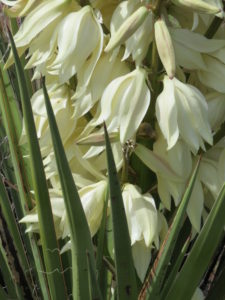 Garden lecture: Oxymels: Sweet & Sour Herbal Preparations for every Organ System
Garden lecture: Oxymels: Sweet & Sour Herbal Preparations for every Organ System
John Slattery
Oxymels date back millennia and provide a method of preservation, a delivery system to the patient and the therapeutic effects of the ingredients used. Although remarked as being of benefit to the digestive and respiratory systems in Hippocratic writings, oxymels can be directed throughout the body via herbal formulation as an alternative to tinctures. In this class, we’ll cover a variety of ways to make oxymels, some strategies for formulating oxymels for each body system, and taste them and observe their effects as we proceed through the body systems.
10:30 AM – 11:00 AM
Refreshments and Exhibit Break
11:00 AM – 12:30 PM
Botanical Medicine for Mood Disorders in Children, Part 2
Mary Rondeau
Continued from Part 1. (See description above)
Promoting Lymphatic Health with Botanicals
Chanchal Cabrera
Understand the importance of healthy lymph flow and how to use herbs to move lymph and stimulate lymphocytes. Outline of points to be covered:
- Immunity: Non-specific (Innate, Th1) and specific (humoral, Th2)
- Lymph system and lymph fluid – structure and function
- Immune tonic herbs – Astragalus memb., mushrooms
- Lymphedema: pathophysiology and naturopathic treatments – contrast hydrotherapy, rebounder, infra red sauna, dry skin brushing, MLD
- Botanical lymphatic agents: Calendula off., Ceanothus sp., Phytolacca decandra, Galium aparine
Demystifying SIBO (Small Intestine Bacterial Overgrowth)
Katie Stage, ND
Small intestinal bacterial overgrowth, or SIBO, has emerged as a very common underlying cause of bloating, abdominal pain, reflux, diarrhea, and constipation. Often, these symptoms are called irritable bowel syndrome (IBS), but finding the cause of the symptoms allows us to offer lasting treatment or cure. This presentation highlights symptoms and diagnosis of SIBO, as well pharmaceutical and herbal treatments, giving the tools needed to treat this condition and address common challenges during treatment.
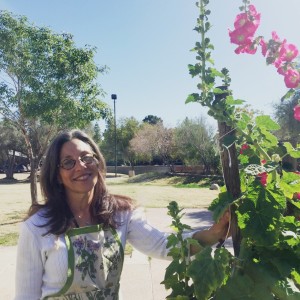
Garden Gems and Preparation—Lesser Known Medicinal Plants (SCNM Herb Garden)
JoAnn Sanchez
We consider how the chemistry of each plant indicates what medicine preparations might be most effective, and learn plant identification of these “garden gems”. JoAnn and her students again bring a wide variety of medicinal samples to the table to illustrate!
12:30 PM – 1:30 PM
Lunch and Exhibit Break
2:00 PM – 3:30 PM
Healthy Aging: Research Summary on Prevention of Musculoskeletal Degeneration, Memory Loss and Other Conditions of Aging
Christopher Hobbs, PhD
Science review on aging includes latest clinical trials, meta-analyses, and epidemiological focused on cognitive and memory decline and musculoskeletal degeneration. Reviews the latest science on the link between diet (especially Mediterranean diet), supplementation (for instance with vitamin D, omega fatty acids), and the regular or daily use of herbs like anti-inflammatories (turmeric, ginger, etc.), immune-supplementation (with medicinal mushrooms). Clinically-focused; what to share with your patients.
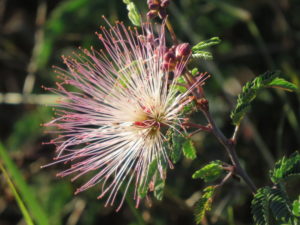
Quinones, Naphthoquinones and Anthraquinones in Clinical Practice
Chanchal Cabrera
These phenolic derivatives give the dark color to teak, mahogany and walnut, provide the anti-parasitic properties of Pau d’arco and give the irritant laxative qualities to cascara and senna. In this illustrated lecture we discuss how to use them safely and effectively for a wide array of clinical applications. We also consider side effects, contraindications and herb/drug interactions.
.
Creating Herbal Syrups (Demonstration in the SCNM Herb Garden)
Jane Bothwell
Syrups are essentially a strong herbal decoction blended with honey or sugar and are a pleasant and effective way to take your herbal medicines. Syrups can be more appealing, thus easier for your patients to take. Learn the basics of creating herbal syrups, receive many of Jane’s favorite formulas and leave this class with the tools necessary to create your own intuitive concoctions.
Creating your own medicines is empowering and gives you a stronger knowledge base from which to choose products for yourself and your patients.
3:30 PM – 4:00 PM
Refreshments and Exhibit Break
4:00 PM – 5:30 PM
Fascia and Physical Reality: Sensory Integration, Pleasure, Pain and Psychology (covers pain syndromes of fibromyalgia, CRPS and arthritis)
Kenneth Proefrock, ND
Here we take our lead from Ida Rolf and discuss the far-reaching ways that fascial tension and rupture can impact the architecture of the rest of the body. We explore the ways in which botanical medicine, nutrition, and specific movement can impact the fascial system in pain syndromes like fibromyalgia, CRPS and arthritis. Specifically, we talk about the botanicals Polygonatum (Solomon’s seal), Urtica (Nettles), Asparagus (Satavari), Cissus quadrangularis, Piscidia, Albizia, Equisetum, Hemidesmus, Zanthoxylum, and Ashwagandha as well as oleoresinous plants like Curcuma, Zingiber, Alpinia, Larrea, and Boswellia. We will also address nutritional and physical exercise options for patients with chronic pain syndromes.
Herban Legends and Clinical Pearls 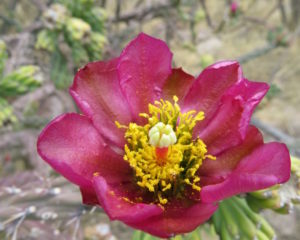
Paul Bergner
An herban legend is a persistent, widely held belief about a plant and its medicinal effects which is not true. The origin is usually based on misinterpretation of some fact of science or tradition and is repeated, believed, and repeated across a generation. A large number of such legends weaken the effectiveness of our North American clinical practice. Each of the herbs, however, have some potent “clinical pearl” unrelated to the legend itself. We discuss herban legends and clinical pearls for Devil’s Club (Oplopanax), Lomatium, Saw Palmetto (Serenoa), Feverfew (Tanacetum), Juniper (Juniperus), Lobelia, Echinacea, Goldenseal (Hydrastis), and Wild Yam (Dioscorea).
Medicines where we Are—Using Common and Not so Common Herbs from the Southwestern Habitat (SCNM Herb Garden)
Mimi Kamp
Explore unique species used as restoratives and analgesics, including Bidens, Eclipta, Justicia and several medicinal 4 o’clocks. We take hints from Mexican folk and indigenous use, and from Ayurveda, and discuss what we can grow in our own gardens—plants and seeds available. Experience a sampling of tinctures and a flower essence if time allows.
5:30 PM –5:45 PM
Closing Meeting
Online and phone registration is now closed. Register at the door.

Paul Bergner is the Director of the North American Institute of Medical Herbalism in Portland, Oregon, where he offers seminar training in clinical skills, medical herbalism, nutrition, and nature cure. He supervised a teaching clinic in Boulder, Colorado from 1996 until 2012, has edited the Medical Herbalism Journal since 1989, and is the author of seven books on herbal medicine.
Presentations:
1. Little-known Physiological Facts that may Change your Practice of Herbalism
2. Herban Legends and Clinical Pearls
3. Powerful Herbal Pairs
Jane Bothwell is a practicing herbalist, educator, hypnotherapist, and flower essence practitioner. Jane is dedicated to empowering people with the knowledge and wisdom necessary to use plants wisely as food, medicine, and spiritual support. With this learning comes a fuller appreciation of the bounty of creation and a greater ability and desire to care for oneself, one’s family, and our universe. She brings 20 plus years of working with clients, teaching herb classes and generally immersing herself in plants.
Presentations:
1. Basics of Tincture Preparation (In the SCNM herb garden)
2. Creating Herbal Syrups
Chanchal Cabrera, MSc, RH (AHG)
The faculty chair of botanical medicine at Boucher Institute of Naturopathic Medicine, Chanchal is a Fellow of the National Institute of Medical Herbalists (UK) and an herbal practitioner specializing in helping patients manage cancer. On her organic farm in British Columbia she runs therapy workshops for people with disabilities.
Presentations:
1. Managing Surgery with Botanicals: When, how, why and why not to do surgery, with special reference to cancer
2. Quinones, Naphthoquinones and Anthraquinones in Clinical Practice
3. Promoting Lymphatic Health with Botanicals
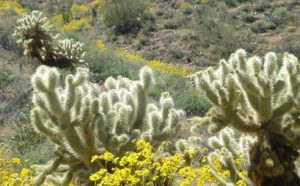
Christopher Hobbs, a fourth generation herbalist, is the author of 22 books on health and herbal medicine. He is a licensed acupuncturist and a PhD and teacher at University of California at Berkeley in the plant sciences of evolutionary biology & botany.
Presentations:
1. Healthy Aging: Research Summary on Prevention of Musculoskeletal Degeneration, Memory Loss and Other Conditions of Aging
2. Clearing the Smoke–Use of Cannabis Compounds for Health and Disease Treatment: A Science-Based Review
The owner of Winter Sun Trading Company in Flagstaff, Phyllis Hogan founded the Arizona Ethnobotanical Research Association (AERA) to investigate, document and preserve native plant usage in the Southwest. She teaches ethnobotany programs for the Navajo & other tribes.
Presentations:
1. Friday Morning Field Study in the Superstition Wilderness Area
2. Medicinal Weeds in my Back Yard (Outdoor Class)
Mimi Kamp has been making plant medicine in the Southwest for over 35 years. Her field classes and presentations emphasize habitat, sustainability, Mexican and ethnobotanical usage, and direct perception and communication with the plants themselves. She is a well-known botanical illustrator and photographer.
Presentations:
1. Friday, 8 AM to 12 Noon. Field Study in the Superstition Wilderness ($59) Read more.
2. Herb Walk at the Desert Botanical Garden ($22 admission to garden)
2. Medicines where we Are—Using Common and Not so Common Herbs from the Southwestern Habitat (SCNM Herb Garden)
Jeffrey Langland has spent much of his career investigating complex cellular defenses and immune responses against microorganisms, and comparing similarities between plant and human defenses against viruses. As a full professor and chair of the research department at SCNM, he brings new insight and innovative approaches to research for students in the field of naturopathic medicine.
Presentation:
1. Comparative Mechanisms of Action between Botanical Antimicrobials and Pharmaceutical Drugs
The founder of Living Flower Essences and The Center for Plant Studies and Healing Arts in Cottonwood, Arizona, Rhonda is an herbalist and flower essence practitioner who teaches herbal studies, plant life and healing journeys in nature. She is the author of Voices of Flowers and The Healing Power of Flowers.
Presentation:
1. Creating Intimacy with the Wisdom of Plants (Outdoors in the Garden)
A naturopathic doctor practicing in Sun City, Arizona, Kenneth Proefrock is also the owner of Vital Force Naturopathic Compounding. He is the vice-president of the North American Board of Naturopathic Examiners and chair of the biochemistry portion of the naturopathic physician’s licensing exam.
Presentations:
1 Pre-conference Intensive Friday April 6: Naturopathic Approaches to Treating Patients with Substance Abuse and Addiction ($79)
2. Fascia and Physical Reality: Sensory Integration, Pleasure, Pain and Psychology (covers pain syndromes of fibromyalgia, CRPS and arthritis)
3. Re-evaluating Botanical Medicine Approaches to Depression and Anxiety
Mary Rondeau specializes in natural medicine for chronic illness in Fort Collins, Colorado. Following medical school training at SCNM and residency training in Utah, she continued her education in southern India, working in various hospital and private practice settings. Reducing medication for children is one of her areas of expertise, and she has found a combination of adjustments in diet, lifestyle and herbal and nutritional supplementation to be very helpful.
Presentations:
1. Botanical Medicine for Mood Disorders in Children, Part 1
2. Botanical Medicine for Mood Disorders in Children, Part 2
3. Keeping Kids Healthy: Botanicals that should be in your medicine cabinet and how to get kids to take them
JoAnn Sanchez is the director of the herbalist training program at Southwest Institute of Healing Arts in Scottsdale (a 700-hour diploma program), for which she has recently published five textbook manuals. She teaches at the Southwest College of Naturopathic Medicine, where she also tends the medicine garden.
Presentations:
1. Garden Gems and Preparation—Lesser Known Medicinal Plants (SCNM Herb Garden)
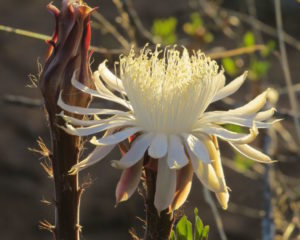
John is a bioregional herbalist helping people develop relationship with wild plants. He founded Desert Tortoise Botanicals in 2005 which offers wildharvested plant medicines to the people of the Southwest. He maintains a clinical practice in Tucson, AZ and offers plant walks, foraging expeditions, field trips into Sonora, Mexico, and his annual Sonoran Herbalist Apprenticeship Program.
Presentations:
1. Friday Afternoon Field Study in the Superstition Wilderness Area: Becoming A Bioregional Herbalist– How we develop relationship with plants ($59)
2. Garden lecture: Oxymels: Sweet & Sour Herbal Preparations for every Organ System
Katie Stage is a naturopathic physician practicing at the SCNM clinic in Tempe. She is a full-time faculty member at SCNM, teaching botanical medicine, hydrotherapy, GYN lab, and clinical skills. She also teaches Mayan healing techniques.
Presentation:
1. Abnormal Paps, Cervical Dysplasia and HPV
2. Demystifying SIBO (Small Intestine Bacterial Overgrowth)
Jill Stansbury, ND
A naturopathic doctor, Jill Stansbury specializes in women’s health, mental health, and chronic disease. She teaches on the faculty of National College of Naturopathic Medicine, where she was chair of the botanical medicine department for 25 years. She travels extensively in the Peruvian Amazon to study indigenous healers and their herbs.
Presentations:
1. A Review of Natural Compounds Shown to Combat Hepatitis Viruses
2. Daily Tonics: Recipes for Life and Longevity
3. Emerging Research on Tropane Alkaloids
David Winston is an herbalist and ethnobotanist with 41 years of training and clinical experience in Cherokee, Chinese and Western/Eclectic herbal traditions. He offers a two year clinical training program in botanical medicine at David Winston’s Center for Herbal Studies and is the founder and president of Herbalist and Alchemist, Inc.
Presentations:
1. Herbal Nootropics: Botanicals for Enhancing Memory, Focus and Concentration
2.Botanical Therapies for Insulin Resistance and Metabolic Syndrome
3. Simple Remedies to Specific Medicines: The path from Thomson, to the Physiomedicalists and the Eclectics

Registration Fees and Information
Registration: $369 by April 5; $399 at the door. NOTE: Online and phone registration closes Thursday April 5 at 5 PM Pacific Time.
Online and phone registration is now closed. Register at the door.
Location: SCNM 2140 E. Broadway Rd. Tempe, Arizona 85282. Conference phone: 541-482-3016.
Directions to registration: Drive past the new SCNM building to the parking lot with the solar panels. The Academic Building is next to the parking lot behind the new building. (This is where we’ve always held the conference.) Go in the front entrance with the blue awning and registration is inside the door.
Arrive at 7:30 AM Saturday April 7 to register. You may also sign up for the pre-conference intensive at the door on Friday April 6 at 12:30 PM, if you are also registered for the whole conference.
Phone 541-482-3016
Cancellations: Before March 21, registration fees will be refunded minus $50 processing per registrant. No refunds can be given after 3/21/18. Refund requests should be sent in writing or email to the conference office.
Herbal Conference Location
Southwest College of Naturopathic Medicine
2140 E. Broadway Rd.
Tempe, AZ 85282
Read more about SCNM .
Lodging
Embassy Suites, Tempe:
Rooms start at $134/night plus tax. (800) 305-1369. Group #SBA. Discount good until March 8.
NEW! Register for your room online. It only takes two minutes. Click here to get started.
Lodging includes complimentary:
-Airport transportation
-Van service from hotel to SCNM.
-Made to order hot breakfast with omelet station
-Evening reception with drinks and snacks.
-Free WiFi in all rooms.
Transportation
The closest airport is Sky Harbor International Airport (PHX). If you are flying to Sky Harbor Airport in Phoenix, van service is complimentary to the Embassy Suites in Tempe. Call the front desk 480-897-7444 when you arrive and they will send the van for you. For other airport transportation, use the SuperShuttle.
If you are driving, the Southwest College of Naturopathic Medicine (SCNM) is located at 2140 E. Broadway Rd in Tempe, AZ (on the north side of East Broadway, just west of the intersection of Price and E. Broadway).
Continuing Education
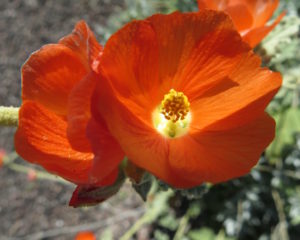
Approvals final for CE, CME, CNE, PDA and CEUs. Number of credits depends on which lectures are attended:
• Naturopathic Physicians
NEW! California ND application for 21.5 hours approved by CNDA, of which 15.5 can be pharmacy. Includes attendance at Friday events. Extra $35 fee for California ND CME. See California CE approval details here.
Arizona ND: Application approved for 21.5 possible general hours of which 12.5 can be pharmacy. Includes attendance at Friday events. CE Details
Oregon ND application approved for 17.5 possible general hours of which 12.5 can be pharmacy for selected lectures. Includes attendance at Friday pre-conference intensive. CE Details
• Acupuncturists
Application appproved for 21.5 PDA (hours) by NCCAOM, which includes attendance at Friday morning and afternoon events. View Acupuncture CE approval details.
• Nurses
Application for 21.5 contact hours in nursing approved by the Western Multi-State Division, an accredited approver by the American Nurses Credentialing Center’s Commission on Accreditation. Includes attendance at Friday events and (new this year) ALL lectures at the weekend event (not just selected lectures). See a detailed Nursing CE contact hours chart here.
• A certificate of attendance is available to any participant who requests it
Updates on CE applications are listed here–check back soon!
Lecture Notes
Lecture n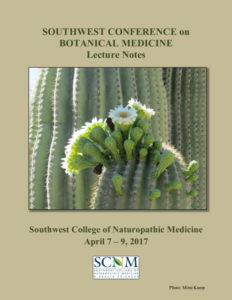 otes are compiled into an online book (proceedings) which is available to all registrants at no cost. Around the middle of March, registrants will be sent a link and password to access the teacher materials. Printed books are also available for $20 at the conference ($30 afterwards).
otes are compiled into an online book (proceedings) which is available to all registrants at no cost. Around the middle of March, registrants will be sent a link and password to access the teacher materials. Printed books are also available for $20 at the conference ($30 afterwards).
We thank Mimi Kamp for the desert photos on this page, and especially the cover photo of the saguaro cactus in bloom (Echinocereus triglochidiatus). Her keen eye and close-up lense helps us to see the desert in a whole new light! Thank you Mimi!
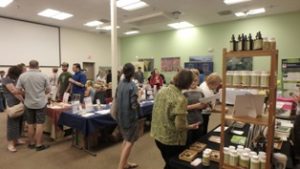
There is now a waiting list for tables in the exhibit halls. Please contact us if you are interested.
Registration includes a table for exhibiting and selling products or services and two conference registrations.
Thank You!
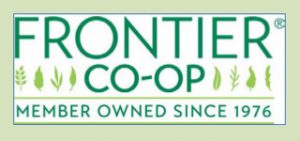
Thank you to Frontier Natural Foods Co-op for their sponsorship of this online brochure. We thank Frontier for their continued annual support, and especially for making this page possible.
| FRIDAY, APRIL 6 | |||||
| 8:00 AM – Noon | Field Study—Mimi Kamp Superstition Mountains ($59) FULL | ||||
| 8:00 AM – Noon | Field Study (now FULL)—Phyllis Hogan Superstition Mountains ($59) | ||||
| 1:00 PM - 5:15 PM | Pre-conference intensive: Naturopathic Therapies for Addiction Kenneth Proefrock ($79) | ||||
| 2:00 PM - 6:00 PM | Field Study (now FULL)—John Slattery First Water Trailhead ($59) | ||||
| SATURDAY, APRIL 7 | |||||
| 7:30 AM - 8:30 AM | Registration- Southwest College of Naturopathic Medicine – Lobby | ||||
| 8:30 AM - 9:15 AM | Welcome- SCNM Auditorium | ||||
| 9:30 AM - 11 AM | Cannabis Review Christopher Hobbs | Hepatitis Jillian Stansbury | Herbal Pairs Paul Bergner | Creating Intimacy with the Plants Rhonda PallasDowney |
|
| 11:00 AM - 11:30 AM | Refreshments/Exhibit Break | ||||
| 11:30 AM - 1 PM | Herbal Nootropics David Winston | Keeping Kids Healthy Mary Rondeau | Cervical Dysplasia and HPV Katie Stage | Tincture Making Jane Bothwell |
|
| 1:00 PM - 2 PM | Lunch and Exhibit Break | ||||
| 2:00 PM - 3:30 PM | Physical Facts that May Change your Herbal Practice Paul Bergner | Managing Surgery with Botanicals Chanchal Cabrera | Comparing Mechanisms of Botanical and Pharm Antimicrobials Jeffrey Langland | Medicinal Weeds in my Back Yard Phyllis Hogan |
|
| 3:30 PM - 4 PM | Refreshments/Exhibit Break | ||||
| 4:00 PM - 5:30 PM | Tropane Alkaloids Jill Stansbury | Simple Remedies and Specific Medicines David Winston | Anxiety and Depression Kenneth Proefrock | Herb Walk Botanical Garden Mimi Kamp |
|
| 5:30 PM - 6:30 PM | Dinner and Exhibit Break | ||||
| 7:00 PM - 8:30 PM | Panel: Preventing Cognitive Decline as we Age Chanchal Cabrera, Katie Stage and Jillian Stansbury |
||||
| SUNDAY APRIL 8 | |||||
| 9:00 AM - 10:30 AM | Children’s Mental Health Part 1 Mary Rondeau | Insulin Resistance David Winston | Daily Tonics Jill Stansbury | Oxymels John Slattery |
|
| 10:30 AM - 11 AM | Refreshments/Exhibit Break | ||||
| 11 AM - 12:30 PM | Children’s Mental Health Part 2 Mary Rondeau | Promoting Lymphatic Health Chanchal Cabrera | SIBO Katie Stage | Garden Gems and Preparation JoAnn Sanchez |
|
| 12:30 PM - 1:30 PM | Lunch and Exhibit Break | ||||
| 2:00 PM - 3:30 PM | Healthy Aging Christopher Hobbs | Quinones in Clinical Practice Chanchal Cabrera | Herbal Syrups Jane Bothwell |
||
| 3:30 PM - 4 PM | Refreshments/Exhibit Break | ||||
| 4:00 PM - 5:30 PM | Pain Syndromes Kenneth Proefrock | Herban Legends and new Clinical Pearls Paul Bergner | Medicines Where we Are Mimi Kamp |
||
| 5:30 PM - 5:45 PM | Closing Meeting | ||||
Online and phone registration is now closed. Register at the door.
Phone 541-482-3016
We look forward to seeing you there!



